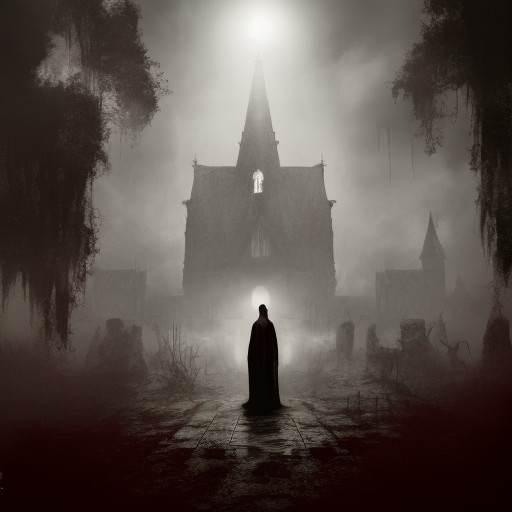The Exorcist: A Battle Between Good and Evil
The Exorcist, written by William Peter Blatty, is a chilling and gripping novel that explores the terrifying world of demonic possession. Set in Georgetown, Washington D.C., the story follows the lives of Father Damien Karras, a troubled priest, and Chris MacNeil, a famous actress, as they confront the malevolent forces that have taken hold of Chris’s young daughter, Regan. Blatty’s masterful storytelling and vivid descriptions create a haunting atmosphere that will leave readers on the edge of their seats.
The Demonic Possession of Regan MacNeil
The Exorcist begins with the introduction of Chris MacNeil, a successful actress who lives with her twelve-year-old daughter, Regan. Strange occurrences start happening in their home, leading Chris to seek medical help for Regan. However, as Regan’s behavior becomes increasingly violent and disturbing, Chris turns to the church for answers. Father Damien Karras, a Jesuit priest struggling with his own crisis of faith, is assigned to investigate Regan’s case.
As Father Karras delves deeper into the mystery surrounding Regan’s possession, he enlists the help of experienced exorcist Father Lankester Merrin. Together, they engage in a battle against the forces of evil that have taken control of Regan’s body and soul. Blatty’s vivid descriptions of Regan’s transformation and the intense exorcism rituals create a sense of dread and terror that permeates the entire novel.
A Struggle Between Faith and Doubt
At its core, The Exorcist is a story about the struggle between faith and doubt. Father Karras, plagued by guilt over his mother’s death and questioning his own beliefs, finds himself thrust into a world where the existence of evil forces is undeniable. As he witnesses the horrors of Regan’s possession, Karras must confront his own demons and find the strength to believe in the power of good.
Blatty skillfully explores the themes of faith, redemption, and the nature of evil throughout the novel. The characters’ internal struggles mirror the external battle against the demonic presence, creating a powerful narrative that forces readers to question their own beliefs and confront their deepest fears.
The Legacy of The Exorcist
Since its publication in 1971, The Exorcist has become a cultural phenomenon, spawning a highly successful film adaptation and numerous sequels. Blatty’s novel continues to captivate audiences with its chilling portrayal of demonic possession and its exploration of the human spirit’s capacity for good and evil.
Key takeaways from The Exorcist include:
- The battle between good and evil is a timeless theme that resonates with audiences.
- Internal struggles and doubts can be as powerful as external forces.
- The power of faith and belief in the face of darkness.
As Father Karras reflects on the nature of evil, he states, “The demon is a liar. He will lie to confuse us. But he will also mix lies with the truth to attack us. The attack is psychological, Damien, and powerful. So don’t listen, remember that. Do not listen.”
This quote encapsulates the central struggle of the novel and serves as a reminder that in the face of evil, one must remain steadfast in their beliefs.
In conclusion, The Exorcist is a chilling and thought-provoking novel that explores the battle between good and evil, faith and doubt. Blatty’s masterful storytelling and vivid descriptions create an atmosphere of terror that will leave readers questioning their own beliefs and fearing the darkness that lurks within.












